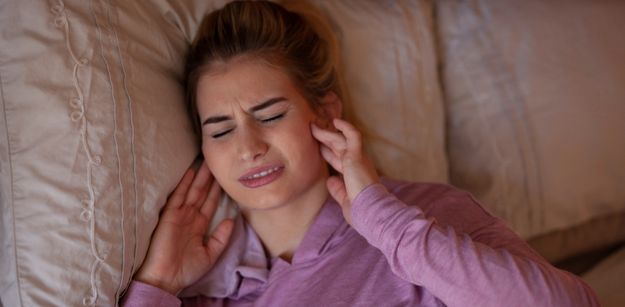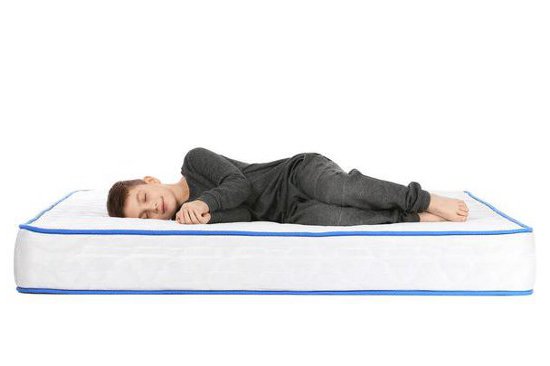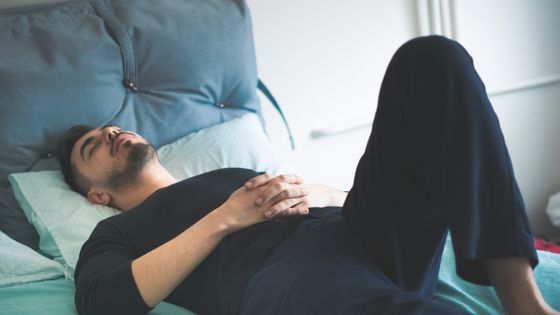Do you suffer from TMJ pain and find it difficult to fall asleep? Any sleeping position that can cause your head to be out of alignment results in jaw clenching and tooth grinding, associated with TMJ pain. You might want to read along and know more about how your sleeping position can affect the TMJ pain or how to sleep with TMJ pain peacefully.
Proper sleep posture is vital for the appropriate alignment of your jaw, neck, and shoulders. It can also help minimize the pain that occurs from TMJ disorder and bruxism. While it may be challenging to change your sleeping position, in the beginning, sleeping with the correct posture can alleviate the TMJ pain and help you get some sound sleep at night.


Read further to know more about how your sleeping posture is related to your TMJ pain:
Sleeping on Your Stomach
Sleeping on your stomach can cause more pressure on your jaw. It can also cause your neck and shoulder to clench, aggravating your condition. Your jaw may also become misaligned from the pressure you exert by sleeping on your side. If you are habituated to sleeping on your stomach and suffer from TMD, it’s highly recommended to consult your TMJ specialist in Illinois immediately and get the best available TMJ treatment for your condition.


If you can’t sleep well without sleeping on your stomach, it can make the Pain in TMJ worse at night for you. Many people with the temporomandibular joint disorder or other jaw-related disorders find it difficult to sleep on their back or side. In such cases, it’s advisable to get the best available TMJ therapy in Naperville before it’s too late.
Sleeping on Your Side
Several studies have shown that sleeping on your side may exacerbate TMJ symptoms. However, other factors may contribute to your discomfort. One such factor is the way you use your arms while sleeping. If you use your arms to prop yourself up by the head, you will strain your neck, resulting in even more jaw pain. If you are experiencing TMJ pain, switching up your sleep position may be time. Visit a nearby TMJ clinic in Naperville for more information.


Another critical consideration when sleeping on your side is the alignment of your spine. It should be appropriately aligned to avoid any further pain. While sleeping on your side reduces the risk of back pain and other discomfort caused by clenching your jaw, you must seek professional guidance on the best possible TMJ sleeping position for you.
Sleeping on Your Back
Many sleep positions may be uncomfortable for someone with TMJ, but sleeping on your back can benefit. It keeps your head and neck in the correct alignment, which minimizes the possibility of grinding your teeth. This also helps reduce snoring, which is another cause of TMJ. While sleeping on your back can help alleviate some pressure on the jaw, it can also aggravate sleep apnea, a disorder in which the airway between the mouth and nose becomes blocked during sleep.


Although sleeping on your back can cause sleep apnea to some level, it can be beneficial for treating other types of pain and disorder. It also provides proper support to your neck and head, an important factor in treating TMJ disorder. If you are unsure about how to sleep with TMJ pain, reach out to a renowned TMJ specialist in Illinois right now!
Using a TMJ pillow for TMJ Pain
Using a TMJ pillow can help alleviate some of the symptoms associated with this disorder. These pillows help keep your neck and head in a neutral position, preventing your jaw from clenching or throbbing. It also provides the correct support for your neck and spine, which can help you get a better night’s sleep. Schedule an appointment with your TMJ specialist in Illinois and discuss the best pillow for TMJ that would be perfect for your condition.
Choosing a pillow that is too high may only lead to more pain because you will be pushing or burrowing into it. Besides, you should experiment with various pillows to find one that works well for you. If you can’t find the one that fits your needs, it’s highly recommended to visit a nearby TMJ clinic in Naperville and get an idea about the best-suited TMJ pillow for you.
Using a Nightguard for TMJ Pain
Sleeping posture and TMJ pain can be exacerbated by how your teeth are positioned while you sleep. Sleeping with a night guard can help you sleep better without the pain and discomfort accompanying TMJ disorder. Nightguards are thin and nearly undetectable and prevent contact between your upper and lower teeth while you are asleep. They are also effective for preventing migraines and headaches caused by grinding and clenching.
Even though your TMJ specialist in Illinois can help you with the best TMJ sleeping position for you, ask for the best-suited nightguard. It may help you sleep better. Using the right nightguard or mouth accessory while sleeping also reduces jaw clenching and teeth grinding, thereby relieving TMJ pain.
Teeth Grinding While Sleeping
If you grind your teeth while sleeping, you likely have some bruxism. Although occasional teeth grinding may not be a big deal, it can cause severe problems for your jaw if it occurs regularly. Over time, it can lead to broken teeth and even loss of tooth enamel. While stress is thought to be the most common culprit in this condition, other factors like sleep apnea, crooked teeth, and abrasions of the jaw may also contribute.
Bruxism may seem normal initially, but it may lead to severe TMJ pain with time. If not treated well in time, it can also cause other extreme medical conditions like neck pain, back pain, etc. If you or someone you know has bruxism issues, contact the nearby TMJ clinic in Naperville and get diagnosed and treated for bruxism and TMJ as early as possible.
Sleeping Posture and TMJ Pain
While sleeping on your back is vital for your TMJ, you should strictly avoid sleeping on your stomach. Sleeping on your side puts pressure on your head and neck, leading to clenching or grinding of your teeth. To minimize stress in your jaw, you should find the best pillow for TMJ that provides adequate support for your head and neck. A supportive TMJ pillow can reduce the tension associated with side-sleeping for side-sleepers.
Sleeping long is not enough; you must also aim to have a good and sound sleep if you suffer from TMJ pain. By finding the best sleep position for your needs, you can eliminate your pain and improve your quality of life. You will be much more productive in the morning when you wake up feeling refreshed and recharged. Contact your TMJ specialist in Illinois right now!
Key Takeaways
While sleeping in the correct position can reduce TMJ symptoms, it is not always enough. During the day, the pain may keep you from getting a good night’s sleep. If you experience TMJ pain, you should try practicing light yoga to help you relax. Focus on exercises designed to relieve TMJ pain and neck pain. It is essential to check with a doctor before beginning any exercise program.
It is crucial to eliminate all the other possible sleep problems when you are planning to start a sleep-related treatment plan. Even if you don’t have severe TMJ pain, getting it checked by a doctor would benefit your health. By consulting a well-versed TMJ specialist in Illinois, you can get the most reliable and trustworthy treatment for TMJ and other jaw-related disorders.



